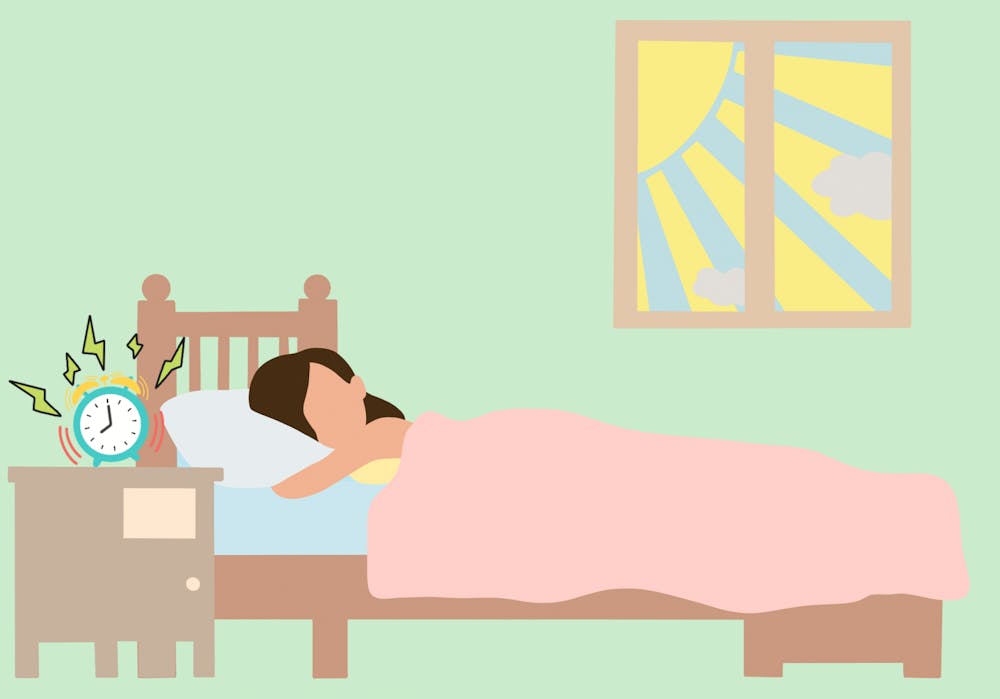I have a confession to make. Last semester, I skipped class — a lot. Like, around two or three classes a week. Admittedly, the University overachiever attitude in me has made sure that every missed note is accounted for, any assignments are still taken care of and that I will be ready for any upcoming exams. However, my recent and repeated decision to skip classes is still very out of character for me. Having barely missed any classes before this semester, and, quite frankly, looking down upon those who did, I shocked myself by beginning to play hooky for lectures and discussions in the past few weeks.
And so, predictably, this new phenomenon was accompanied by a change in perspective as big questions began to arise. What merits a shift in priorities? Is school truly always the most important part of my life? And how do I handle the guilt associated with missing classes?
When I arrived at the University as a first year, I brought with me a staunch determination to never miss a class unless absolutely necessary. And I stuck to it for the whole year, missing only a few classes for travels to and from quarantine. Admittedly, it’s a bit easier to always be on time to class when classes are online, only a few feet from your bed — sometimes, even in bed — but I was still proud of myself. Last semester was thus a tough transition. Instead of a seconds-long walk to class, I now had to factor in 10 or 15-minute commutes and was no longer able to make breakfast while in class. Nevertheless, I missed only a few classes last semester, pushing myself to make it to sessions so I wouldn’t have to work to catch up later.
However, after spring break, my pattern of persistent attendance began to falter. I was faced with one obstacle after another — jet lag, health issues for myself and my loved ones, big exams and assignments — as they piled up, the looming mountain of homework on my desk seemed like a better use of my time than listening to lectures that I ultimately wouldn’t be tested on. Everyone I talked to seemed to think that this was perfectly reasonable. I was dealing with a lot, they told me, and I was allowed to take care of myself however I needed. Even still, my faltering attendance nagged at me, and one phrase nagged at me. Oft repeated by parents and teachers alike, the most common admonition to the insubordinate class-skipper — “why would you miss class? You paid to be there.”
Haunted by the guilt brought on by this line of thinking, I struggled to not feel like an ungrateful daughter — a waste of money. My parents had worked hard their whole lives to send me to college, and here I was, flippantly choosing to let their money go to waste, not taking advantage of the education that only a small percentage of the world was even lucky enough to receive. I reasoned with myself, saying that, actually, we were paying for the degree, not the actual classes. Though I was continuing to work hard to keep my GPA to the ridiculous standard we University students set for ourselves, I comforted myself with the fact that ultimately, not many employers would care about my GPA once I had graduated.
Even though it was true, the logic I was using failed to make me feel better. I felt like I was making excuses, justifying my lazy inadequacy with shallow comforting statements. And therein laid my real problem. The supposed grievousness, ingratitude and moral offense of skipping class wasn’t what was getting to me — it was what my missed classes were leading me to believe about myself.
Having bought into the societal messages that not prioritizing school work meant one was more lazy, unintelligent or a worse student than their peers, I was now believing these things about myself. Though they are largely unfounded and incorrect, these assumptions were so pervasive in my line of thinking about attendance that I found them unable to shake and greatly impacted my self-esteem as I struggled with other obstacles.
The obvious answer to my problem was just to go to class — to suck it up and accept that though some people might be able to skip classes, my teacher’s pet, try-hard personality would never allow me to miss classes, even when it might be what’s best for me. At least I wasn’t one of the people who couldn’t even skip readings — now that would have been too much, even for me. But the harder I tried to go to class, the worse I felt when I ultimately realized that I wouldn’t be able to make it to my oceanography lecture, religion class or dance practice.
And so, I tried a new tactic. I decided that I would give myself two skips a week until a certain point and wrote out my weekly schedule to decide which days would be the busiest, thus figuring out which classes I would need to miss. Eventually, life did calm down, and I’m back to attending most of my classes. But by giving myself grace in my very schedule, I was able to apply myself to what I was able to accomplish, prioritizing the quality of my work over the quantity of my attendance.
Don’t get me wrong — I don’t advise skipping class. Ultimately, it makes more work for later — copying notes, emailing professors and desperate attempts to catch up. However, when it’s necessary, I would advise the attendance perfectionist not to be afraid to cut themselves some slack — even if it means also cutting some classes.
Caitlyn Kelley is a Life Columnist for The Cavalier Daily. She can be reached at life@cavalierdaily.com.







